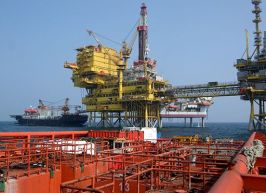Зарегистрируйтесь на getAbstract, чтобы получить доступ к этому краткому изложению.

Зарегистрируйтесь на getAbstract, чтобы получить доступ к этому краткому изложению.
Economist Intelligence Unit
The Great Game for Gas in the Caspian
Europe Opens the Southern Corridor
EIU, 2013
Что внутри?
The European Union, Russia, the US and China are all playing a “great game” for the Caspian’s oil and gas.
Recommendation
Since the collapse of the Soviet Union, energy consumers and producers have vied to tap the Caspian region’s oil and gas resources. In a replay of “the Great Game” – the 19th-century tussle between the British and Russian empires over the region – the European Union, Russia, the United States and China are now exercising their geopolitical muscle to gain strategic advantage over the region’s as-yet untapped and plentiful resources. These modern, major empires have their own, often conflicting, priorities that will likely affect the future of the Caspian region and of the world’s energy markets: The EU has to ensure its future energy security with a “Southern Gas Corridor,” China has to feed its growing demand, Russia has to lock in its customers, the Caspian nations have to grow and the US has to balance its strategic interests in the region. getAbstract recommends this outstanding brief from the Economist Intelligence Unit to analysts, executives, policy makers and anyone interested in the politics of energy.
Summary
About the Author
The Economist Intelligence Unit produces reports that address the needs of businesses with cross-border interests. It provides information on a variety of subjects including economics, politics and regulation.





























Comment on this summary